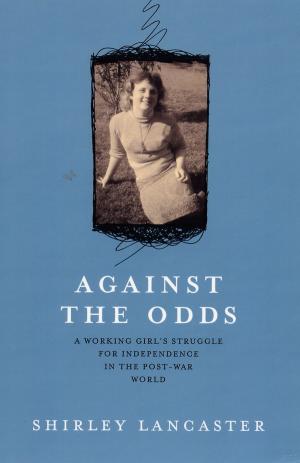Footprints in The Snow and Sand
a story of Eastern Poland in the wake of the Soviet Occupation in 1939
Fiction & Literature, Action Suspense| Author: | Danuta Gray | ISBN: | 9781909421554 |
| Publisher: | Arena Books | Publication: | May 5, 2015 |
| Imprint: | Arena Books | Language: | English |
| Author: | Danuta Gray |
| ISBN: | 9781909421554 |
| Publisher: | Arena Books |
| Publication: | May 5, 2015 |
| Imprint: | Arena Books |
| Language: | English |
This is the personal story of the author’s early childhood and that of her family leading up to and following the Soviet invasion of Eastern Poland in September 1939, a political move made in conjunction with the simultaneous Nazi invasion of the country from the West.
Eastern Poland (as the boundaries then existed) had a high proportion of Ukrainians and there had long been tension between the two races. After the Soviet occupation discriminatory laws were passed against the Poles that even made it permissible for their murder, to torch their houses, and destroy their businesses. Polish children were excluded from schools and it became a frightening place in which to live, and Frank and Helen (the author’s parents) and their two children were again forced to live with the in-laws.
Several days later Russian soldiers arrived and arrested the entire family as “enemies of the Soviet Union,” and together with others, they were packed into cattle wagons and taken on a harrowing six-week journey to a Siberian gulag. There they were fed black bread and boiling water once a day. For two weeks Helen concealed the fact that her son had died on the journey because dead bodies were thrown out to the wolves. In the camp they were maltreated and forced into heavy labour.
In July 1941 Hitler invaded Russia and Stalin declared an amnesty for the Poles and they were released in December but without the support of food or transport. They walked for six months throughout a harsh winter, and were reduced to eating their leather belts and the bark of trees. Many were then conscripted in the struggle against Hitler, and of the 1.7 million people arrested in Eastern Poland in 1939, only half of them had survived by the time they reached Krasnovodsk in 1942. From there they were taken to Pahlevi in Teheran, and finally to Karachi in India.
This is the personal story of the author’s early childhood and that of her family leading up to and following the Soviet invasion of Eastern Poland in September 1939, a political move made in conjunction with the simultaneous Nazi invasion of the country from the West.
Eastern Poland (as the boundaries then existed) had a high proportion of Ukrainians and there had long been tension between the two races. After the Soviet occupation discriminatory laws were passed against the Poles that even made it permissible for their murder, to torch their houses, and destroy their businesses. Polish children were excluded from schools and it became a frightening place in which to live, and Frank and Helen (the author’s parents) and their two children were again forced to live with the in-laws.
Several days later Russian soldiers arrived and arrested the entire family as “enemies of the Soviet Union,” and together with others, they were packed into cattle wagons and taken on a harrowing six-week journey to a Siberian gulag. There they were fed black bread and boiling water once a day. For two weeks Helen concealed the fact that her son had died on the journey because dead bodies were thrown out to the wolves. In the camp they were maltreated and forced into heavy labour.
In July 1941 Hitler invaded Russia and Stalin declared an amnesty for the Poles and they were released in December but without the support of food or transport. They walked for six months throughout a harsh winter, and were reduced to eating their leather belts and the bark of trees. Many were then conscripted in the struggle against Hitler, and of the 1.7 million people arrested in Eastern Poland in 1939, only half of them had survived by the time they reached Krasnovodsk in 1942. From there they were taken to Pahlevi in Teheran, and finally to Karachi in India.















